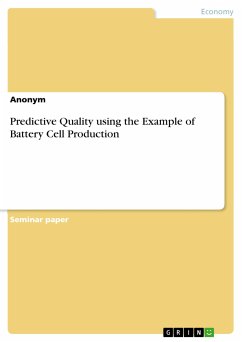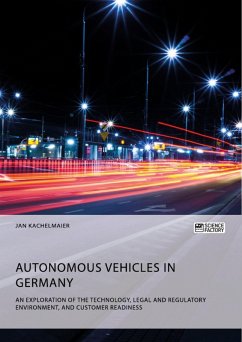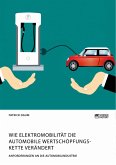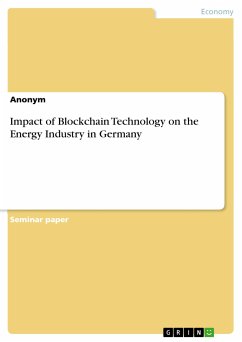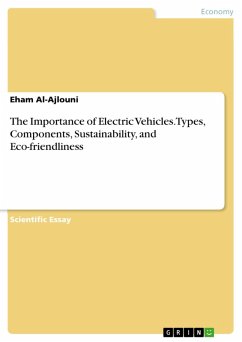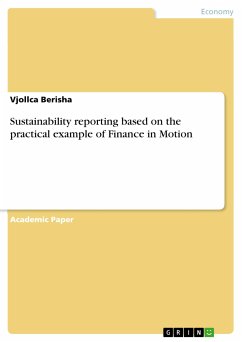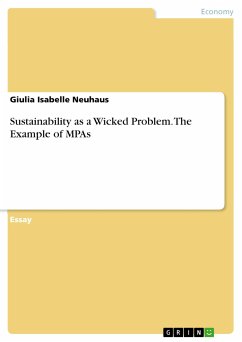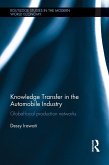Seminar paper in the subject Economics - Other, grade: 1, Fresenius University of Applied Sciences Hamburg, language: English, abstract: Climate change promotes the emergence of new concepts for mobility in order to reduce CO2 emissions and minimize the consumption of fossil fuels. As a result, more and more automotive companies are changing their portfolios from internal combustion engines to electric motors due to legal requirements of the EU. This also means that the energy source of automobiles is changing from diesel or gasoline to electrical energy. Battery cells are needed to store this energy in the car. The battery cells can in turn be used to build battery modules and battery packs. The demand for batteries is increasing worldwide. This also creates new requirements for quality and efficiency. In addition, the degree of digitalization in manufacturing industries, such as car manufacturers, continues to increase. The quality of the batteries can be guaranteed with different methods. One method is predictive quality, which can be used to predict quality in advance. But which process steps in battery cell production benefit from this quality method?
Dieser Download kann aus rechtlichen Gründen nur mit Rechnungsadresse in A, B, BG, CY, CZ, D, DK, EW, E, FIN, F, GR, HR, H, IRL, I, LT, L, LR, M, NL, PL, P, R, S, SLO, SK ausgeliefert werden.

